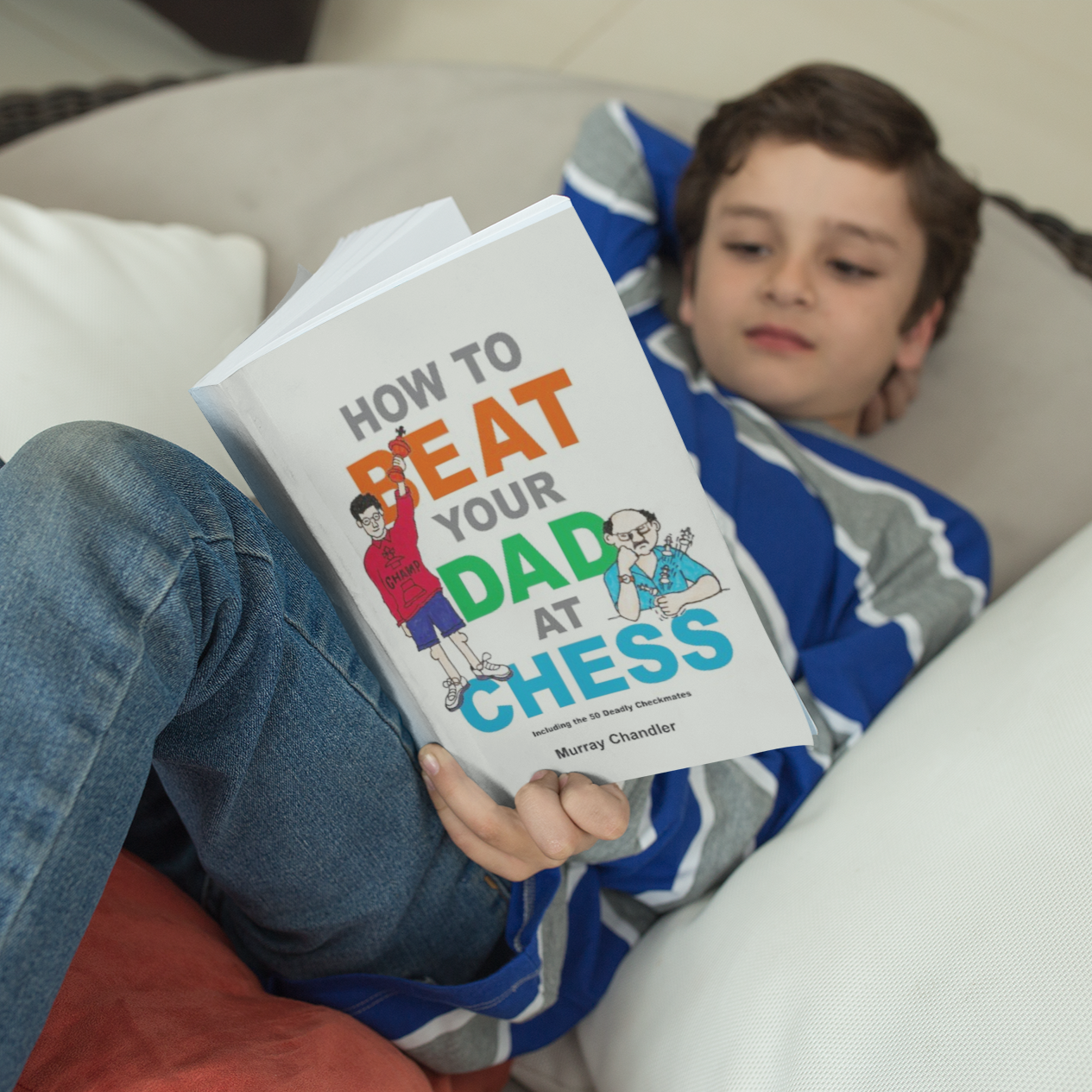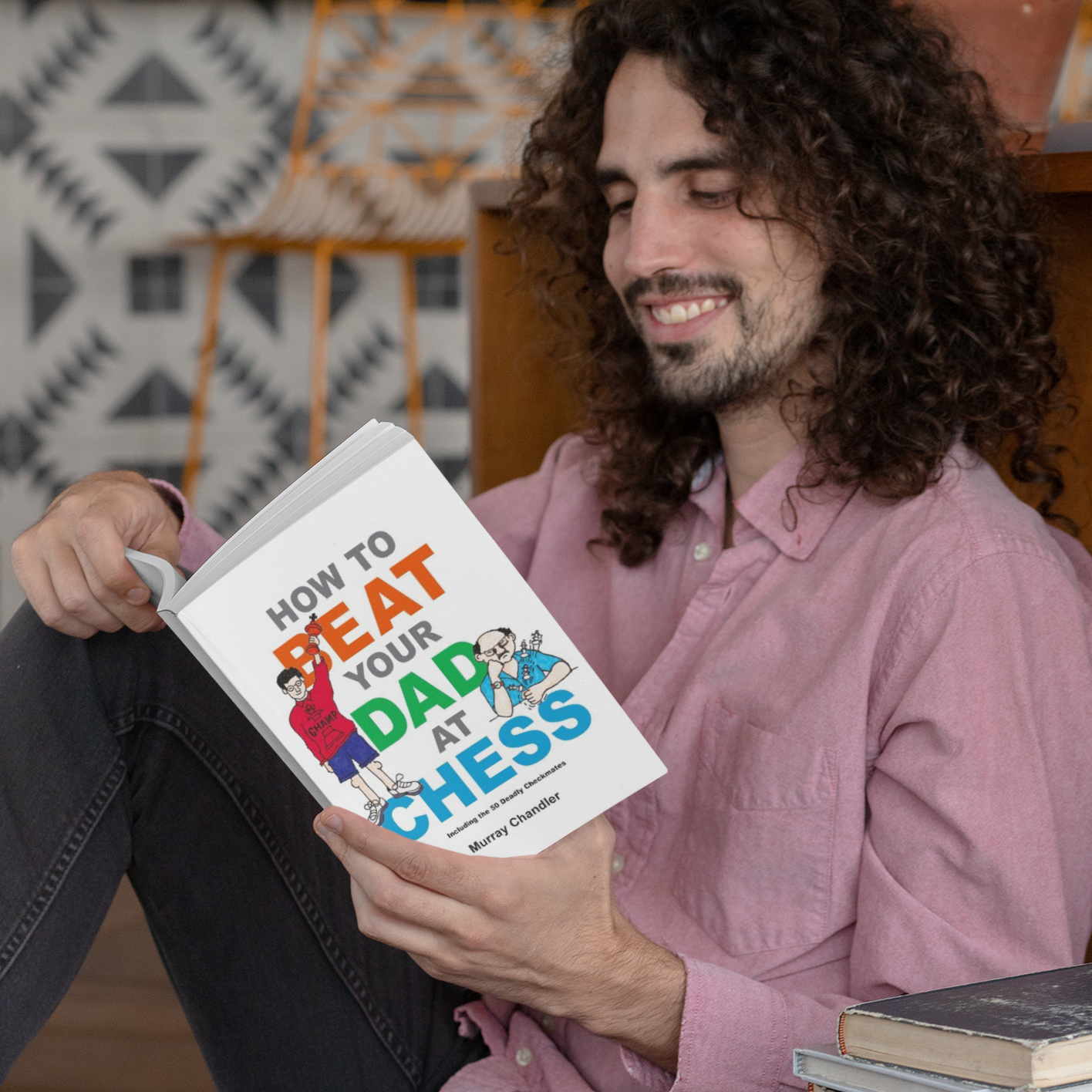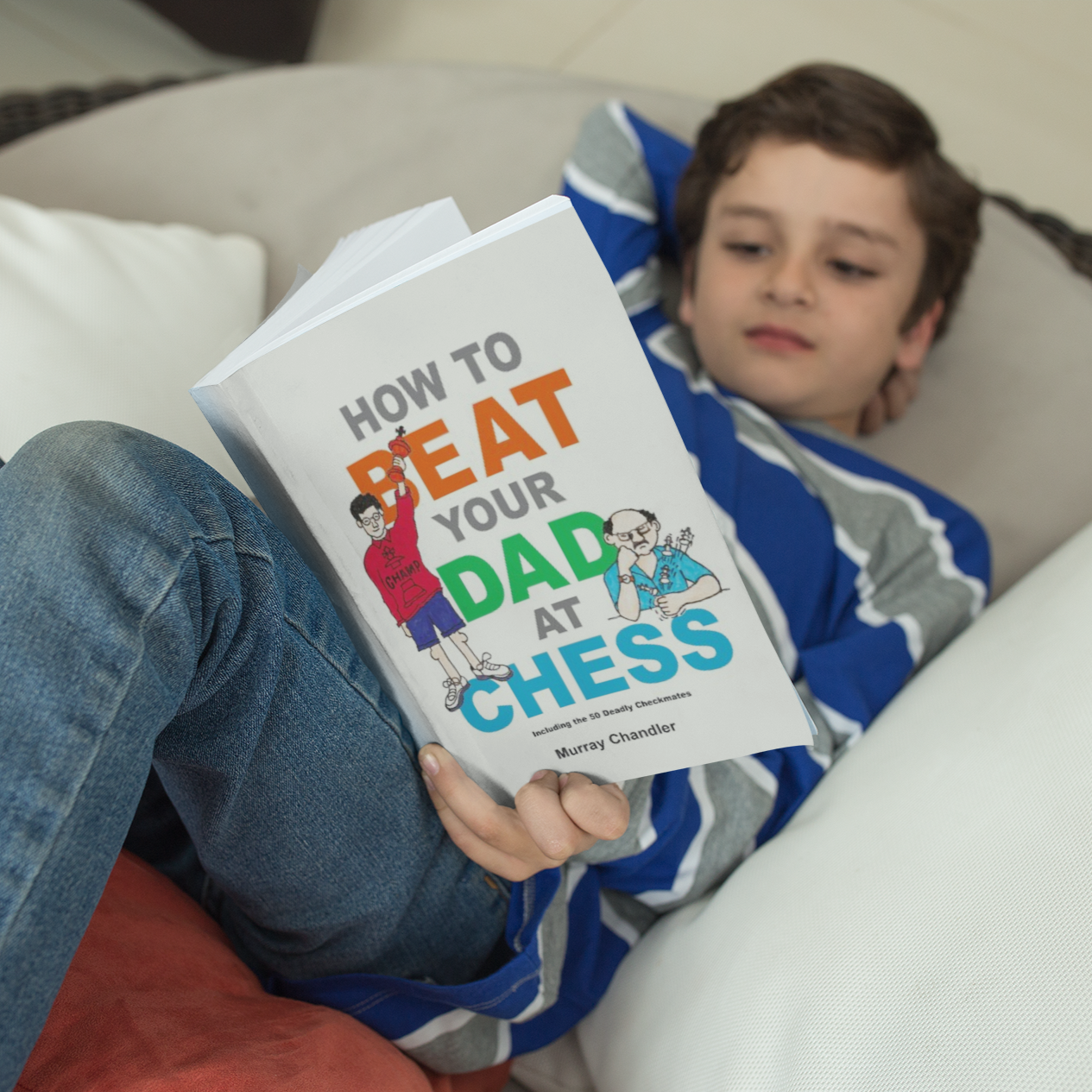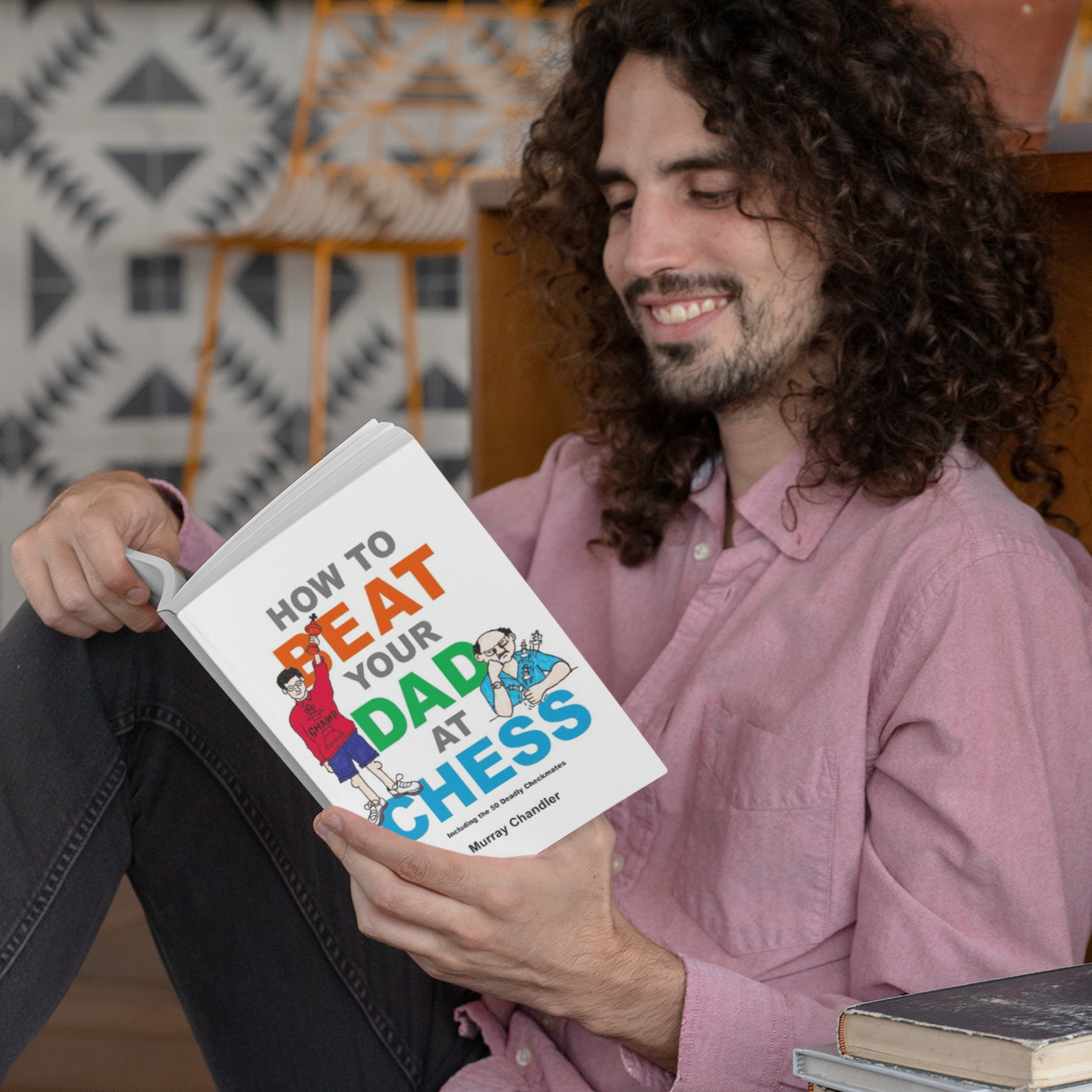chessleb
How to Beat Your Dad at Chess (Gambit Chess)
How to Beat Your Dad at Chess (Gambit Chess)
Couldn't load pickup availability
This is a chess book for everyone, from eight to eighty, beginner to master. In a clear, easy-to-follow format it explains how the best way to beat a stronger opponent (be it a friend, clubmate – or Dad!) is by cleverly forcing checkmate. Delightful and instructive positions from real games are used to show the 50 Deadly Checkmates that chess masters use to win their games.
For the beginner, simply learning the checkmating ideas and enjoying the examples will help develop the tactical skills needed to carry out attacks, combinations and sacrifices.
For the advanced player, many of these checkmating ideas will come as a revelation, having never been categorized before. Experts agree that pattern-recognition is vital to success in chess, and this book provides a wealth of valuable patterns.
How to Beat Your Dad at Chess makes improving easy and fun, and is full of helpful explanations and practical advice on how to approach chess games with confidence – and success.
Grandmaster Murray Chandler finished second in the World Cadet Championship in 1976, ahead of Garry Kasparov, whom he defeated in their individual game. He remains to this day one of the few players in the world with a 100% score against Kasparov. He was a key member of the England team that won the silver medals in Chess Olympiads three times during the 1980s, and went on to captain the team in 1994. He is a former proprietor and Editor-in-Chief of the British Chess Magazine and the author of several bestselling chess books.
Review: Even knowing English GM Nunn to be a wonderful chess author, this book exceeded my expectations. john has done a remarkable job of covering well the vast sea that is the middlegame in just over 200 pages. In 100 topics, with 2 pages devoted to each, a wealth of middlegame instruction is clearly and logically explained. Expected topics like Attack, Defense, Pawn Structure are covered. All these are covered with very well chosen and annotated examples. Where the book goes beyond 'standard' for me is when he covers topics like Typical Mistakes (eg 'Missing a Tactical Defense', 'Lack of Alertness', 'Quitting'), and Activity (eg, 'The Curse of Passivity'). There is extensive coverage of how to play with various material imbalances (a topic that often separates strong players from their weaker opponents, and thus one worth learning). Highly recommended.
print lenght: 232 pages




